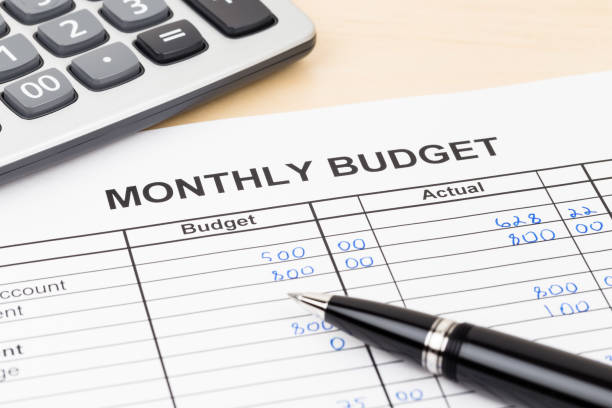Budgeting Basics: Why You Need One
Let’s face it, most people think of spreadsheets, limitations, or giving up all enjoyment when they hear the phrase “budget.” However, budgeting isn’t about cutting back on your way of life. It’s about gaining control, freedom, and mental tranquility. Fundamentally, a budget is just a financial plan, and that plan may (and should) represent your beliefs, your objectives, and even your desire to occasionally buy a concert ticket or coffee.
It is more crucial than ever to understand where your money is going in the modern world of growing living expenses, social media-driven spending patterns, and unstable finances. Despite this, a lot of people completely skip budgeting, either because they believe it is only required when they are having financial difficulties or because it feels troublesome. However, everyone should adopt a budget, and the earlier you do so, the more prepared you will be to handle life’s unexpected turns.
So, What Exactly Is a Budget?
A budget is a summary of your earnings and outlays. It displays what is entering, leaving, and coming out. More importantly, though, it’s a tool for deliberate decision-making. Would you like to take more trips? Pay off debt? Create a fund for emergencies? On purpose, a budget helps you get there.
You risk losing your money if you don’t have a budget. On Friday, you may receive your paycheck, but by Monday, you may question where it all went. By creating a budget, you can get clarity and break the cycle of uncertainty and worry. Giving your money a purpose is more important than depriving yourself.
Why Budgeting Isn’t Just for the Struggling
There’s a widespread misconception that budgeting is only important if you’re trying to pay off debt or are living paycheck to paycheck. However, that couldn’t be more untrue. Budgeting is actually a must for some of the wealthiest and most prosperous people.
This is so because knowledge and alignment are key components of a budget. It links your priorities and spending. A budget is your financial compass, whether your goal is to save for a down payment, retire early, or simply quit impulsive purchases.
Consider this: even if you’re doing “fine,” wouldn’t it be nice to know just how fine? Instead of speculating and hoping, wouldn’t it be nice to see your goals’ development in real time?
What Budgeting Actually Looks Like
You don’t have to learn Excel formulas or keep track of every penny in a notebook in order to create a budget. Although some people really enjoy those things, it’s also quite acceptable to utilize an app, a basic worksheet, or simply mental check-ins if that’s what you find most effective. Increasing your awareness of your financial conduct is the goal.
Knowing how much you make (after taxes), how much you usually spend, and where your money usually goes is the first step. The number of people who don’t know the answers to such fundamental questions may surprise you. With a better understanding, you can begin to pinpoint areas that require adjustment; perhaps you’re not saving as much as you had anticipated or you’re spending more on delivery than you had anticipated.
The crucial thing to remember is that a budget is subject to change. It’s a living, breathing document that can evolve with you. It should change as your goals, lifestyle, and money do.
Freedom Through Structure
One of the biggest misconceptions about budgeting is that it’s rigid and restrictive. In actuality, freedom is produced by a sound budget. That last-minute weekend getaway or supper out feels much more like part of the plan rather than a financial act of rebellion when you know your rent is paid, your bills are paid, and your savings are increasing.
Actually, budgeting helps lessen the guilt associated with spending. You won’t have to ask, “Can I afford this?” since you will already know. That gives one a tremendous sense of empowerment.
Additionally, budgeting enables you to handle life’s inevitable unforeseen events, such as a car repair, medical cost, or job change, without losing your cool. That emergency reserve that you have been gradually accumulating? It becomes a safety net for you. And the resulting peace of mind is invaluable.
The Emotional Side of Money
Budgeting is closely related to psychology and isn’t just about statistics. Our background, feelings, and even our self-perception all have an impact on our financial behaviors. Budgeting is, therefore, not a one-size-fits-all process. It must align with your values and personality.
You should budget for enjoyment if you’re a spender. Your budget should remind you to have fun with your money if you’re a saver. Progress, not perfection, is the aim. Finding a system that works for you may take some time, but that’s alright too.
Final Thoughts: Progress Over Perfection
Ultimately, creating a budget is a skill. It requires practice, just like everything else, and mistakes will be made occasionally. Perhaps you’ll forget to buy a birthday present or spend too much money on groceries in one month. That is typical. The important thing is that you continue to show up and gain knowledge from it.
A perfect financial plan is not the goal of budgeting. Its goal is to increase self-awareness, self-assurance, and control. Making your money work for you, not the other way around, is the goal.
Therefore, start small if you’ve been avoiding budgeting because you think it’s too difficult, too restrictive, or just plain boring. Get messy first. Simply begin.
You’ll be grateful to yourself later.





